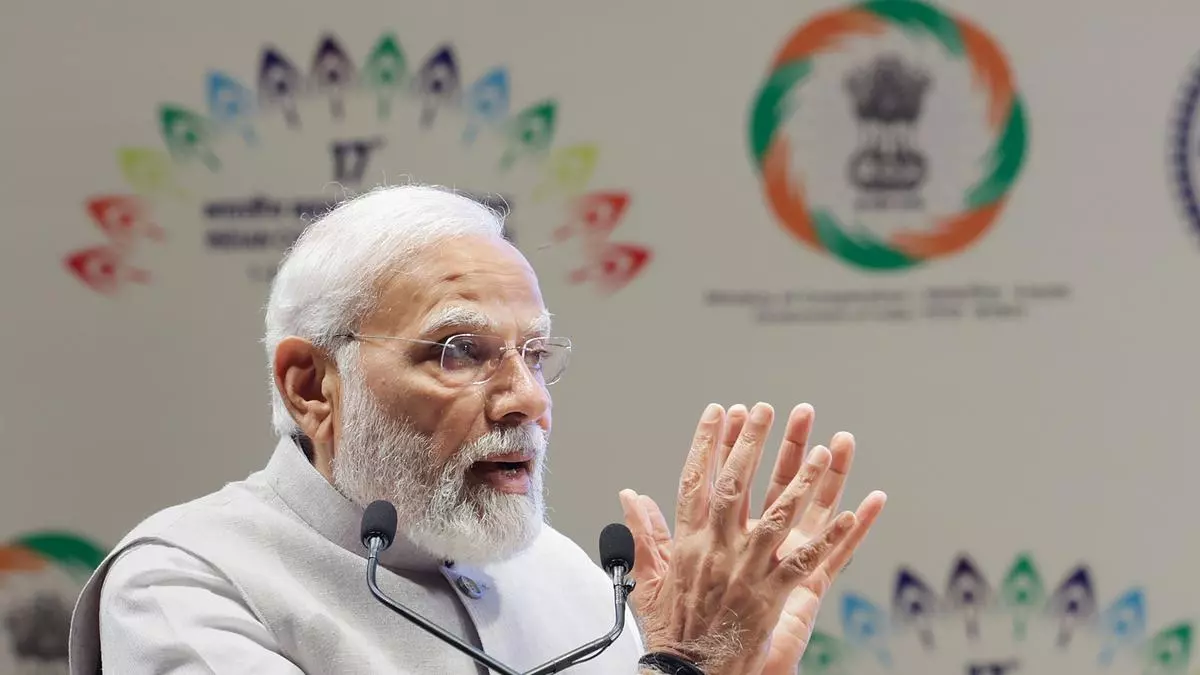Centre spending ₹50,000 annually on each farmer through DBT, subsidy
Prime Minister Narendra Modi said on Saturday that his government spends INR 6.5 crore annually on the agriculture sector and the welfare of farmers, and there can be no greater guarantee than this. He also sought to support the cooperative sector in creating the world’s largest grain storage system and to make the country self-reliant for edible oils.
opening 17y Indian Cooperative Congress, Modi highlighted the work done by the government since 2014 and said that the agricultural budget of the UPA government for the past five years (2009-14) was less than Rs. The National Democratic Assembly between 2019 and 2023)) under only one scheme – Prime Minister Kisan.
In the past nine years, Modi said, more than Rs 15,000 crore has been given to farmers by purchasing their produce at the lowest support price (MSP), while another Rs 10 crore has been spent on fertilizer subsidies.
“The government is working to ensure that every farmer in the country receives around INR 50,000 every year one way or another,” Modi said.
- BL Explanation: Direct Benefit Transfer (DBT) and its benefits
He also said, “In the BJP government, farmers are guaranteed INR 50,000 every year in various ways. This is a guarantee for Modi.
In the recent Karnataka assembly elections, it was widely reported that the Congress party won the “five guarantees” that were promised to the people. The success model is being replicated in Madhya Pradesh with similar promise to voters.
storage scheme
Speaking at the Collaborators Gathering in New Delhi, Modi also said that given the lack of storage facilities, it has led to a major challenge to food security for a long time, The central government has already announced the world’s largest warehousing scheme. There is a plan to create a storage capacity of 700,000 tons in the next five years, while 1,400 liters has been built in several decades.
He appealed to the cooperative sector to make the plan a success, as the country could store less than 50 percent of the grain produced. He reported that more than ₹ 40,000 crore has already been invested since the introduction of the ₹ 1-lakh-crore Agriculture Infrastructure Fund (AIF) three years ago. “A large part of this investment is coming from PACs and more efforts are needed from cooperatives in setting up farm gate infrastructure,” Modi said.
-
is reading: It’s time to redefine grain storage in India
According to the AIF dashboard, 31,268 projects with estimated project costs of ₹41,476 crores, of which ₹24,459 crores were sanctioned under AIF and ₹14,939 crores disbursed, have been sanctioned so far. Of the total amount approved, approval for the cooperative sector amounted to Rs. 3,142 crore (13 per cent), and only Rs. 602 crore was sanctioned.
The Prime Minister was confident that the cooperatives would become a powerful vehicle of economic resource for the country in the new India. He also said that cooperatives should become carriers of social policy and national policy rather than politics.
food imports
On the issue of food imports by India, he appealed to the government The cooperative sector to make the country Latmanerbahar (self-sufficient) in oilseeds So there is no need to import cooking oil. He pointed out that up to 2.5 crore food items are imported annually, which can be achieved by local farmers.
During the two-day event, organized by the National Co-operative Federation of India, stakeholders will discuss various trends in the cooperative movement, present best practices being adopted, deliberate challenges being faced and outline future policy actions for the growth of the cooperative movement in India.
